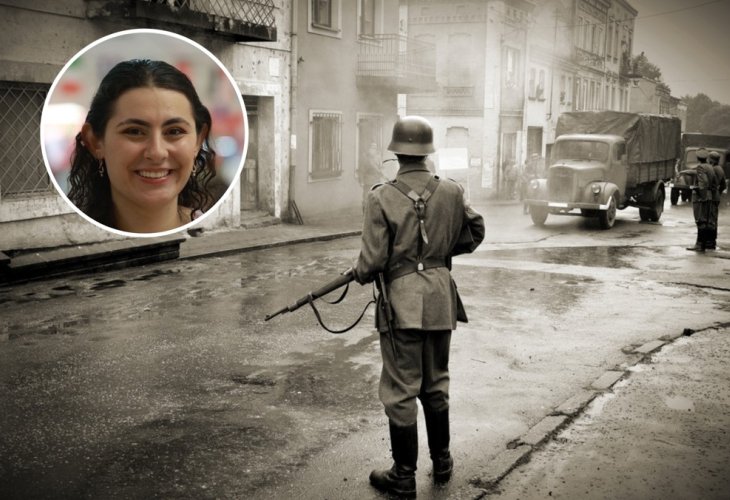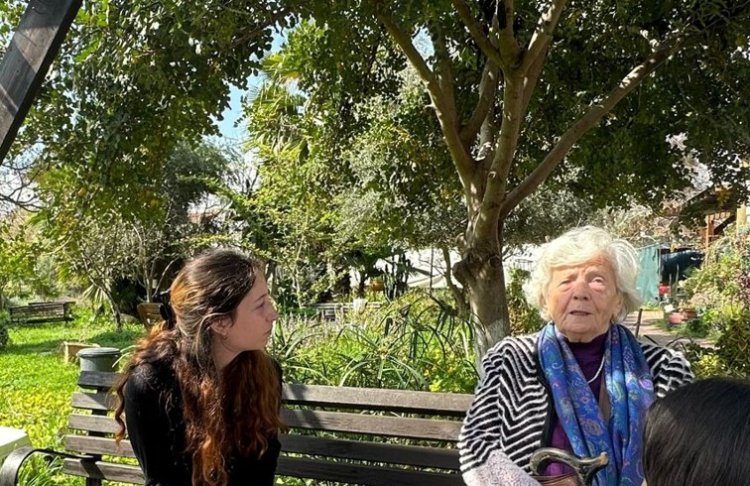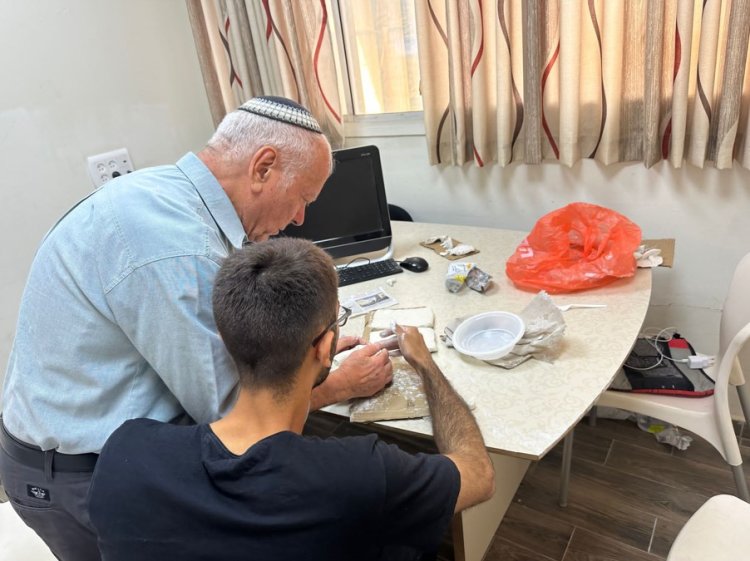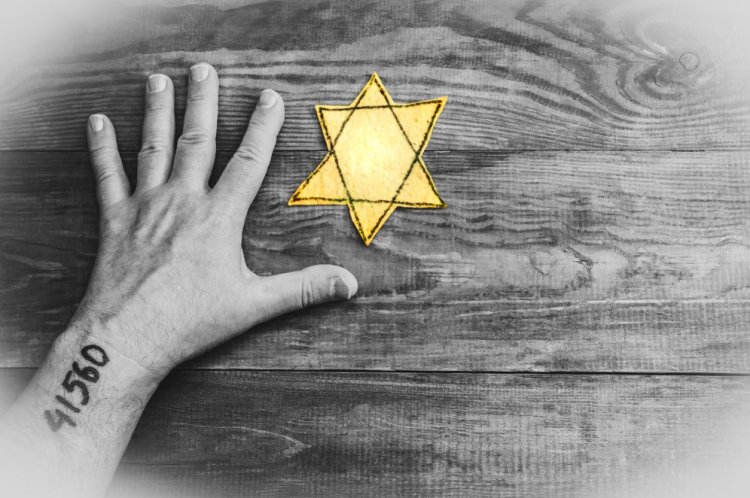The Holocaust
How One High-School Student Is Connecting Teenagers with Holocaust Survivors Across Israel
“A Stage for Memory” project brings youth and Holocaust survivors together to preserve personal stories, fight loneliness, and keep memory alive
 (Background: shutterstock)
(Background: shutterstock)How does a 12th-grade student manage to bring together hundreds of teenagers who visit elderly Holocaust survivors and help them preserve and pass on their life stories? When asked, Shira Israeli smiles and admits that she, too, struggles to explain the remarkable phenomenon created through the project she founded, “A Stage for Memory.”
“I’ve always loved initiating things, volunteering, and helping,” she says — but even this explanation doesn’t fully capture the growing movement, which today involves high-school students from Haifa to Be’er Sheva.
It all began when Shira was assigned a project in English: to create a short “roots film” about her parents’ family during the Holocaust. “At that moment I realized I had a problem,” she recalls, “because my father’s family doesn’t talk about the Holocaust at all. Even though my grandparents survived, they don’t share what they went through. On my mother’s side, almost the entire family passed away in the 1980s. Most of them lived in Australia, so my mother herself met her grandparents maybe five times in her entire life. After my grandmother passed away, my mother traveled to Australia and returned with letters and photos — but I still don’t really know what happened to them.”

Giving Memory a Stage
With no other option, Shira decided to conduct research for the assignment, trying to locate information about her family during the Holocaust through official institutions. “That’s how I reached some of the largest archives in the world, in an attempt to uncover as much information as possible. I discovered a great deal — but sadly, there are many details I will never know, because there is no one left to ask.”
That’s when the idea took shape: to establish a unique project that would bring teenagers together with Holocaust survivors so they could hear their life stories directly. “The goal of the project is twofold,” Shira emphasizes. “I want young people to become more familiar with the survivors’ stories, and at the same time, I want Holocaust survivors to have someone to share with — someone who will truly listen to their memories.”

Shira explains that the project was also motivated by stark data showing that time is rapidly running out. “Today there are about 147,000 Holocaust survivors. On average, 42 survivors pass away every day. Each year, between 15,000 and 16,000 leave us, and within the next two decades, the last Holocaust survivor in Israel will likely pass away. Beyond that, 30% of survivors live in loneliness. And from a survey I conducted among teenagers, I learned that 50% feel disconnected from the Holocaust. It’s not that they don’t know about it — sometimes they even study it around Holocaust Remembrance Day, but beyond that, it’s just another history subject for matriculation exams, something that feels unrelated to them. That’s exactly the point I wanted to change.
“My aspiration isn’t especially grand,” Shira adds. “I simply want that when teenagers stand during the siren on Yom HaShoah, they’ll remember at least one personal story — someone they know, through whom they can connect to the subject. That’s why I founded ‘A Stage for Memory,’ and why I’ve been leading it forward for the past two years.”
 (Photo: shutterstock)
(Photo: shutterstock)How Does the Project Work?
“Teenagers in grades 9–12 join the project, and we connect every two or three of them with a Holocaust survivor. They accompany that person for half a year, doing various activities together, depending on what suits both sides. Some play games or listen to music together, others cook together, and there are even girls who organized a dance with the elderly woman they befriended. During the process, each group chooses how it wants to document the survivor’s personal story. At the end of the year, we hold a ‘culmination evening’ where we present the documented stories created by the groups.”
Organizing such a project must require enormous effort. How do you manage?
“That’s true,” Shira answers. “The work is endless — especially since the project is expected to operate in 15 branches, from Haifa to Be’er Sheva. Thankfully, we have a large, cooperative team, and we’re also looking for additional volunteers to help.
“As a high-school student, I certainly don’t lack responsibilities,” she adds honestly. “But I was simply drawn into this. And every time I encounter the reactions of the elderly survivors, I gain strength from it. I was especially moved by the reactions of my own grandparents, who attended the last culmination event. Despite the fact that they had steadfastly refused for years to share what they went through, I saw them with tears in their eyes — and I felt that despite their personal difficulty, they were standing behind me and encouraging me.”

